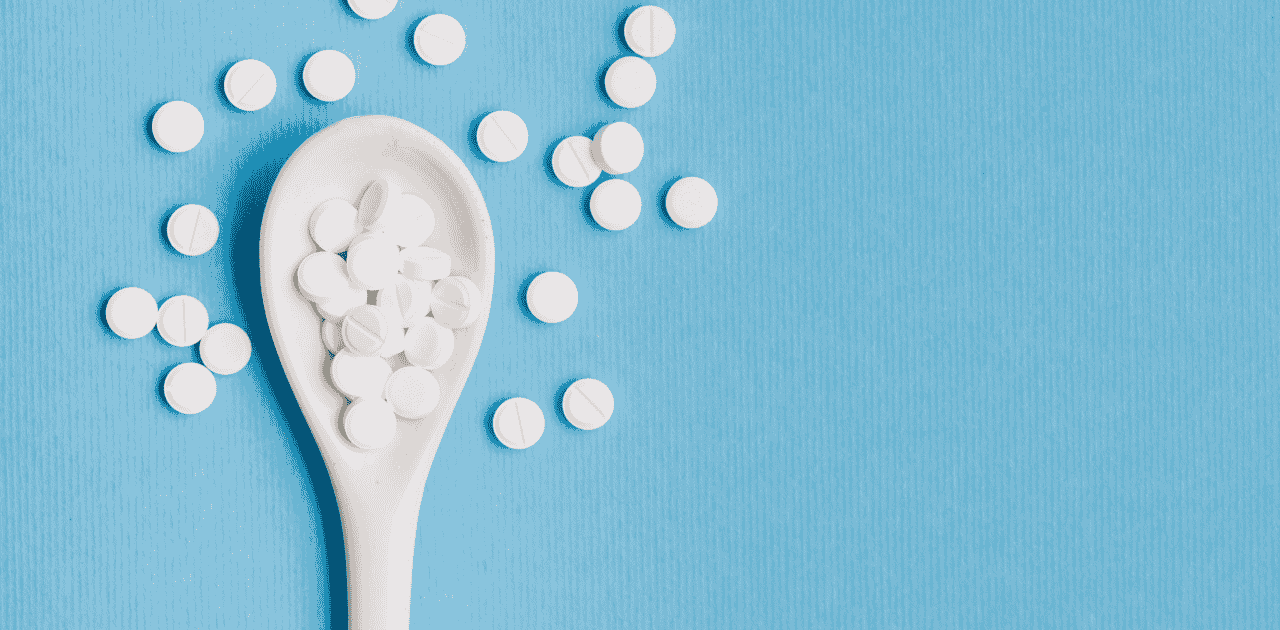Statins are among the most commonly prescribed drugs for managing high cholesterol and preventing heart disease. These powerful medications work by lowering LDL cholesterol (the “bad” cholesterol) and reducing the risk of heart attacks, strokes, and other cardiovascular events. While statins are highly effective, they can also come with certain risks and side effects that are important to understand before starting treatment.
In this blog, we’ll explore the benefits and risks of statins, who should consider taking them, and how to manage potential side effects. Understanding these factors can help you make informed decisions about your heart health and discuss your treatment options with your doctor.
What Are Statins and How Do They Work?
Statins belong to a class of drugs called HMG-CoA reductase inhibitors, which block the enzyme responsible for producing cholesterol in the liver. By reducing the production of cholesterol, statins help lower LDL cholesterol levels and reduce the risk of plaque buildup in the arteries.
How Statins Work:
- Lower LDL Cholesterol: Statins reduce the liver’s production of cholesterol, leading to lower levels of LDL cholesterol in the blood.
- Increase LDL Receptors: Statins increase the number of LDL receptors on liver cells, allowing the liver to remove more LDL cholesterol from the blood.
- Reduce Inflammation: Statins have anti-inflammatory properties that help reduce inflammation in the arteries, which can prevent plaque buildup and stabilize existing plaque.
Fact: Statins can lower LDL cholesterol levels by 30-50%, depending on the type of statin and dosage, making them one of the most effective medications for managing high cholesterol?source: Mayo Clinic?.
Commonly Prescribed Statins:
- Atorvastatin (Lipitor)
- Simvastatin (Zocor)
- Rosuvastatin (Crestor)
- Pravastatin (Pravachol)
- Lovastatin (Mevacor)
Note: Your doctor will determine the best statin and dosage for you based on your cholesterol levels, cardiovascular risk, and any existing health conditions.
Benefits of Statins: Why They’re Important for Heart Health
Statins offer several benefits that make them a cornerstone in the management of high cholesterol and cardiovascular disease.
1. Reduce the Risk of Heart Disease and Stroke
Lowering LDL cholesterol levels reduces the risk of plaque buildup in the arteries, which can cause atherosclerosis (hardening and narrowing of the arteries). By preventing plaque formation, statins help reduce the risk of heart attacks, strokes, and other cardiovascular events.
2. Stabilize Existing Plaques
Statins help stabilize existing plaque in the arteries, reducing the risk of plaque rupture and blood clots, which can lead to heart attacks or strokes.
3. Provide Anti-Inflammatory Benefits
Beyond lowering cholesterol, statins have anti-inflammatory properties that reduce inflammation in the arteries, further protecting against cardiovascular disease.
4. Improve Survival Rates in Heart Disease Patients
Studies have shown that people with a history of heart disease who take statins have a lower risk of recurrent heart attacks and improved survival rates compared to those not on statin therapy.
Indian Context: In India, statins are commonly prescribed to manage high cholesterol in both primary and secondary prevention of heart disease. Due to the high prevalence of heart disease in the country, statins play a critical role in reducing cardiovascular risk?source: Indian Heart Association (IHA)?.

Who Should Consider Taking Statins?
Statins are recommended for people with certain risk factors for heart disease or high cholesterol. Your doctor will assess your overall cardiovascular risk before recommending statin therapy.
1. People with High LDL Cholesterol
Statins are often prescribed for individuals with an LDL cholesterol level of 130 mg/dL or higher, especially if lifestyle changes alone have not been sufficient to lower cholesterol.
2. Individuals with a History of Heart Disease or Stroke
Statins are used as a secondary prevention strategy for people who have already had a heart attack, stroke, or other cardiovascular events. They help reduce the risk of future events and improve survival rates.
3. Patients with Diabetes
Diabetes increases the risk of heart disease, so statins are often recommended for people with diabetes, particularly those over the age of 40 or with additional cardiovascular risk factors.
4. People with Multiple Cardiovascular Risk Factors
Individuals with high blood pressure, smoking history, a family history of heart disease, or other risk factors may benefit from statins to reduce their overall cardiovascular risk.
Fact: According to the American College of Cardiology (ACC), statins are recommended for people with a 10-year cardiovascular risk of 7.5% or higher, as assessed by the ASCVD Risk Calculator?source: ACC?.
Potential Risks and Side Effects of Statins
While statins are generally safe and well-tolerated, they can cause side effects in some people. It’s important to be aware of these risks and discuss any concerns with your doctor.
Common Side Effects:
- Muscle Pain or Weakness: Myopathy, or muscle pain, is the most commonly reported side effect. In rare cases, it can progress to a more serious condition called rhabdomyolysis, where muscle breakdown leads to kidney damage.
- Liver Enzyme Elevation: Statins can cause a slight increase in liver enzymes, indicating mild liver irritation. Regular liver function tests are recommended to monitor for any changes.
- Digestive Issues: Some people experience digestive problems such as nausea, constipation, or diarrhea.
- Increased Blood Sugar Levels: Statins can raise blood sugar levels slightly, increasing the risk of developing diabetes in some individuals.
- Headaches or Dizziness: These are less common but can occur when starting or adjusting the dose of statins.
Rare but Serious Side Effects:
- Rhabdomyolysis: A serious condition where muscle breakdown leads to kidney damage. Symptoms include severe muscle pain, dark urine, and fatigue.
- Memory Loss or Confusion: Some people report memory problems or confusion while taking statins, but these symptoms are typically reversible once the medication is stopped.
Managing Statin Side Effects:
- Report any unusual muscle pain, weakness, or dark urine to your doctor immediately.
- Take statins with food to reduce the risk of digestive issues.
- Your doctor may recommend adjusting the dose, switching to a different statin, or trying non-statin cholesterol-lowering medications if side effects are severe.
Who Should Avoid Statins?
- Pregnant women and individuals with active liver disease should not take statins, as they can harm the developing baby or worsen liver function.
- People with a history of statin intolerance should discuss alternative treatment options with their healthcare provider.
Managing Cholesterol with Statins: Tips for Success
If you’ve been prescribed statins, taking them as directed and monitoring your cholesterol levels regularly is essential for achieving the best results. Here are some tips to help you manage your cholesterol effectively with statins:
1. Follow Your Doctor’s Instructions
Take your medication exactly as prescribed, and do not stop taking it without consulting your doctor, even if you feel well. Stopping statins suddenly can cause a spike in cholesterol levels and increase the risk of heart attacks or strokes.
2. Monitor for Side Effects
Be aware of any side effects and report them to your doctor as soon as possible. Your doctor may adjust your dosage or switch you to a different medication if needed.
3. Make Healthy Lifestyle Changes
While statins are highly effective, they work best when combined with a heart-healthy lifestyle. Adopt a diet rich in fruits, vegetables, whole grains, and lean proteins, and limit your intake of saturated fats and trans fats.
4. Exercise Regularly
Aim for at least 30 minutes of moderate exercise, such as brisk walking, cycling, or swimming, most days of the week to improve your cholesterol levels and overall heart health.
5. Regularly Check Your Cholesterol Levels
Schedule regular check-ups with your healthcare provider to monitor your cholesterol levels and assess the effectiveness of your statin therapy.
Alternatives to Statins: Other Options for Lowering Cholesterol
If statins are not suitable for you due to side effects or other health conditions, there are alternative medications and strategies that can help manage your cholesterol levels.
1. Ezetimibe
Ezetimibe blocks cholesterol absorption in the intestines, reducing LDL cholesterol levels. It is often used in combination with statins for better cholesterol control.
2. PCSK9 Inhibitors
PCSK9 inhibitors are injectable drugs that help the liver remove more LDL cholesterol from the blood. They are particularly useful for people with very high cholesterol levels or those who cannot tolerate statins.
3. Bile Acid Sequestrants
These medications bind to bile acids in the intestine, forcing the liver to use more cholesterol to produce new bile acids, which lowers LDL cholesterol levels.
4. Fibrates
Fibrates are primarily used to lower triglycerides and increase HDL cholesterol, but they can also help reduce LDL cholesterol in some cases.
In Conclusion
Statins are a powerful and effective tool for managing high cholesterol and reducing the risk of heart disease. While they offer several benefits, it’s essential to be aware of the potential risks and side effects associated with these medications. By working closely with your healthcare provider, monitoring your cholesterol levels, and adopting a heart-healthy lifestyle, you can maximize the benefits of statin therapy and protect your heart health.
If you’re considering statins or have concerns about your current medication, talk to your doctor to find the best treatment plan for your individual needs.
Key Takeaways:
- Statins lower LDL cholesterol by blocking cholesterol production in the liver and providing additional cardiovascular benefits such as reducing inflammation and stabilizing plaque.
- Statins are recommended for people with high cholesterol, a history of heart disease or stroke, diabetes, or multiple cardiovascular risk factors.
- Common side effects of statins include muscle pain, liver enzyme elevation, and digestive issues. Rare but serious side effects include rhabdomyolysis and memory problems.
- Alternatives to statins, such as ezetimibe and PCSK9 inhibitors, may be suitable for patients who cannot tolerate statins.
- Combining statin therapy with lifestyle changes like a healthy diet and regular exercise enhances the effectiveness of cholesterol management.
References:
- American Heart Association (AHA): Statins and Heart Disease Prevention
- Mayo Clinic: Understanding Statins and Their Side Effects
- Indian Heart Association (IHA): Statin Use in India
- World Health Organization (WHO): Cholesterol Management



